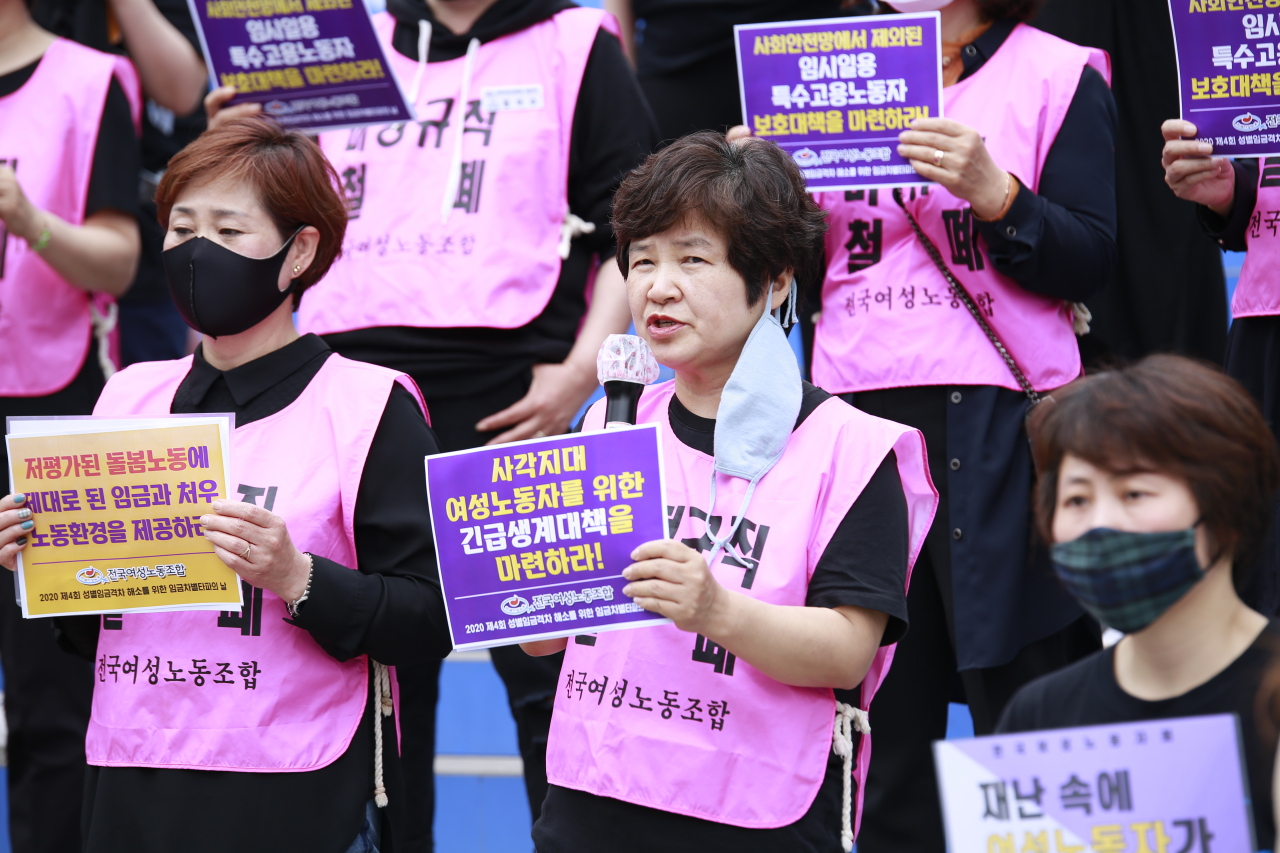‘At workplaces and home, female workers hit harder by COVID-19 outbreak’
By Ock Hyun-juPublished : May 18, 2020 - 18:08

Female workers bear the brunt of the coronavirus outbreak, women’s rights groups said Monday, explaining that women shoulder heavier burdens of housework and child care while also facing a greater risk of losing their jobs.
As schools and nurseries throughout the country closed to contain the spread of the coronavirus, it was women who had to spend more hours taking care of children and doing household chores. And they are the first to be laid off or take pay cuts, the groups said at a press conference in Seoul on Monday.
“The social childcare system, which collapsed due to the COVID-10 crisis, leaves the responsibility of looking after children to family, especially to women,” they said in a press release. “Women are forced to work under unstable conditions or excluded from the labor market because of the widespread assumption that women should or will take care of their children.”
School openings have been delayed for nearly three months, with classes currently being conducted online, amid the spread of the coronavirus. Nurseries and kindergartens have also been closed. They are to reopen soon, starting with high school seniors on Wednesday.
“The COVID-19 crisis reinforces sexual discrimination and, in return, is highly likely to exacerbate the gender pay gap,” they said.
The country’s female labor force decreased by 115,000 in March and 293,000 in April, compared with the same months a year earlier, while the male labor force diminished by 81,000 in March and 183,000 in April, according to data on employment trends released by Statistics Korea.
Women earned about 37 percent less than men in Korea on average as of 2018, according to an analysis by the Federation of Korean Trade Unions’ research institute based on data from the statistics agency. It is one of the biggest gaps among the member countries of the Organization for Economic Cooperation and Development, in part because more women work in temporary positions or are employed by subcontractors.
According to the data, the proportion of workers in permanent jobs in 2018 was 73.6 percent for men and 58.8 percent for women. While 12.4 percent of male workers were paid less than the country’s minimum wage, the proportion was 28 percent for female workers. Men on average worked for 8.1 years straight and women 5.3 years straight.
Organized by the Korean Women Workers Association and a women’s trade union under the umbrella labor union the Korean Confederation of Trade Unions, the press conference has been held annually since 2017 to raise awareness of the existing wage gap between men and women in Korean society and to call for action to narrow the gap.
The groups plan to conduct a four-week survey on labor conditions faced by women and run a counseling hotline for female workers.
By Ock Hyun-ju (laeticia.ock@heraldcorp.com)
-
Articles by Ock Hyun-ju








![[KH Explains] How should Korea adjust its trade defenses against Chinese EVs?](http://res.heraldm.com/phpwas/restmb_idxmake.php?idx=644&simg=/content/image/2024/04/15/20240415050562_0.jpg&u=20240415144419)











![[Today’s K-pop] Stray Kids to return soon: report](http://res.heraldm.com/phpwas/restmb_idxmake.php?idx=642&simg=/content/image/2024/04/16/20240416050713_0.jpg&u=)